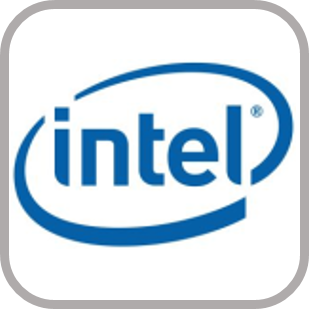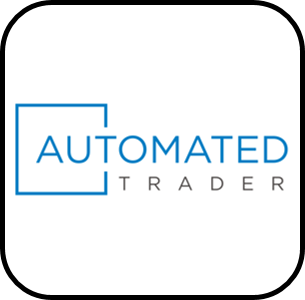STAC Summit, 1 Nov 2017, NYC
STAC Summits bring together industry leaders in architecture, app dev, infrastructure
engineering, and operational intelligence to discuss important technical challenges in
the finance industry. Come to hear leading ideas and exchange views with your peers.
WHERE
New York Marriott Marquis, 1535 Broadway, New York
Astor Ballroom

Agenda
Click on the session titles to view the slides and videos (may require member permissions).
 Big Compute
Big Compute
 Fast Compute
Fast Compute
 Big Data
Big Data
 Fast Data
Fast Data
STAC Exchange
    |
|
|
Vendors with exhibit tables at the conference. (click here for the exhibitor list). |
STAC Update for big compute analytics |
|
|
Peter will present the latest benchmark results for big-compute workloads based on derivatives risk. |
STAC Update for big data analytics |
|
|
Peter will discuss the latest benchmark results involving big data workloads such as tick analytics and backtesting. |
Panel: The changing face of analytics infrastructure  |
|
Beefing up analytics is top of the agenda for many capital markets firms today. Whether it's searching for alpha or better execution, supporting new risk-management needs, improving surveillance, or any number of other challenges, demand is soaring for both data-intensive and compute-intensive analytics. Which software and hardware architectures are capable of providing the scale, speed, and flexibility that today's quants and machine-learning algorithms require? Can firms meet those demands at a reasonable cost? How is the role of on-prem and cloud infrastructure evolving? We'll put these questions and more to a cross-functional panel of experts. |
Innovation Roundup - Round 1  |
|
| "QuasarDB Time Series: transparent historical market data management" Edouard Alligand, CEO, quasardb |
|
| "Levyx: Backtesting in the Cloud" Matt Meinel, Financial Services Business Development, Levyx |
|
| "Accelerating Intelligence: Bigstream Hyper-Acceleration" Roop Ganguly, Solution Architect, Bigstream |
Hitching QuantLib to KNL: An experience with Intel Xeon Phi |
|
|
As the capabilities of processors and co-processors continue to increase, the opportunity for applications to take advantage of those capabilities gets larger--but so does the programming challenge. As part of research at the Illinois Institute of Technology into parallel software design patterns, Tom has been working with the latest Intel Xeon Phi processor (Knights Landing) to understand how best to exploit its features. Using QuantLib as a use case, he is adapting the code to leverage AVX-512 instruction sets, Phi-specific intrinsics and mixed thread/vector concurrency code generation in the Intel Compiler Collection, as well as High-Bandwidth Memory, streaming writes, and Sub-NUMA Clustering. In this talk, Tom will provide a snapshot of his experience so far. |
Scaling High-Performance Python with Minimal Effort |
||
|
Firms using Python for financial modeling want to scale their analytics with maximum efficiency and minimum effort. To address these challenges, researchers at Intel Labs developed a compiler-based system called High Performance Analytics Toolkit (HPAT) and contributed it to the open source community. HPAT compiles data analytics and machine learning code written in Python (Pandas/Numpy) to efficient parallel binaries with MPI, while requiring minimal code changes. According to Ehsan, the lead contributor to HPAT, performance can be orders of magnitude faster than Apache Spark in cluster/cloud environments. Ehsan will explain how HPAT works and what Python programs it supports. |
Innovation Roundup - Round 2  |
|
| "Flash Storage: A New Life is Possible with Better Latency, Throughput, and Density" Young Paik, Director, Product Planning, Samsung Semiconductor, Inc. |
|
| "Performance tips for applications on Optane" Mark Laurenz, Marketing Manager, Intel |
|
| "X-IO Axellio, Updates from The Edge" Hollis Beall, Director of Performance Engineering, X-IO Technologies |
|
| "Lenovo: Leadership Performance & Innovation" Dave Weber, Director & CTO, Lenovo |
Why you're probably leaving C++ performance on the table    |
|
|
Getting the lowest latency or highest throughput from C++ code remains a top priority for many trading firms. That explains the enthusiastic response to our talk by Bjarne Stroustrup last year and our panels on C++ in HFT at the Chicago and London STAC Summits. One of those panelists was Tom Rodgers, who has over 20 years of experience writing high-performance C++ code for trading firms and is on the ISO C++ Committee, including SG 1 (concurrency) and SG14 (low latency). After providing a quick review of the structure of modern machines, Tom will discuss fundamentals such as the cache, alignment of data, and data placement. He will cover the importance of structuring code to give the compiler the most information possible for optimization, and he’ll show the differences in machine code that result from optimal versus non-optimal code. Finally, he’ll touch on key performance issues in multi-threaded design, challenging some common assumptions along the way (e.g., is lock free always better?). |
Here come the time cops: How regulators and the regulated are looking at MiFID 2 rollout |
|
|
Peter will provide his perspective on the preparedness of firms for MiFID2 time compliance, as well as how regualtory enforcement is looking at this point. He will also provide updates on STAC-TS research on time synchronization, timestamping, and event capture, as well as software tools to demonstrate compliance with time-sync regulations. |
Innovation Roundup - Round 3  |
|
| "Monitoring of Time Sensitive Networks" John Fischer, CTO, Spectracom |
|
| "Monitoring at High Speed: Accurate Data=Better Decisions" Joshua Joiner, Director, Solution Engineering & Support, cPacket |
The Race, Season 5: What's in the Air |
||
|
We’re now a good five years into the low-latency wireless era, which followed just two years after the advent of the ultra-direct fiber era. Is there another “era” to come? Does some other transport promise to move latencies asymptotically closer to the speed of light in a vacuum, while raising the table stakes even higher for low-latency trading? Or could a new approach potentially reduce the cost of ultra-low latency enough to broaden competition in the elite speed game? What about satellites? Drones? Balloons? In this talk, Stephane will review some of these approaches and analyze their potential to influence the trading business. |
STAC Update: Fast Data |
|
|
Peter will discuss the latest research and Council activities related to low-latency/high-throughput realtime workloads. |
Innovation Roundup - Round 4  |
|
| “Low Latency Networking Update” Asaf Wachtel, VP Business Development, Mellanox |
|
| "Solarflare: Faster and in-sync" Davor Frank, Senior Solutions Architect, Solarflare |
|
| "Power, performance and predictability improvements from Exablaze." Dr Matthew P. Grosvenor, Vice President Technology, Exablaze |
The State of Play in FPGA  |
|
As the latency race continues to compress the time delta between successful and unsuccessful trades, FPGA-based solutions continue to play an important role in the architecture of many trading firms. In this discussion involving panelists with different angles on FPGA, we'll get perspectives on a number of questions, such as: What is the state of the art for FPGA hardware, and what trajectory can we see for future products? Do the hardware suppliers share the same product priorities as trading firms, or is there a widening gap? What is changing and what is staying the same in how firms are deploying FPGA-based solutions? How are leading firms handling the productivity challenge of FPGA DevOps? Come hear our panelists' answers and ask some questions of your own. |
PLATINUM SPONSORS
GOLD SPONSORS
MEDIA PARTNER
About STAC Events & Meetings
STAC events bring together CTOs and other industry leaders responsible for solution architecture, infrastructure engineering, application development, machine learning/deep learning engineering, data engineering, and operational intelligence to discuss important technical challenges in financial services.
 |
 |
 |
|---|---|---|








